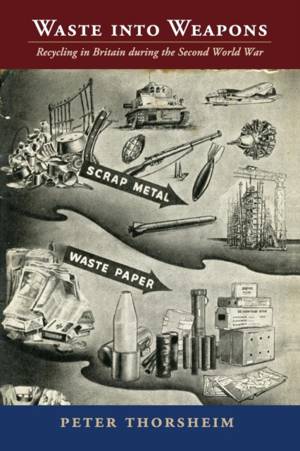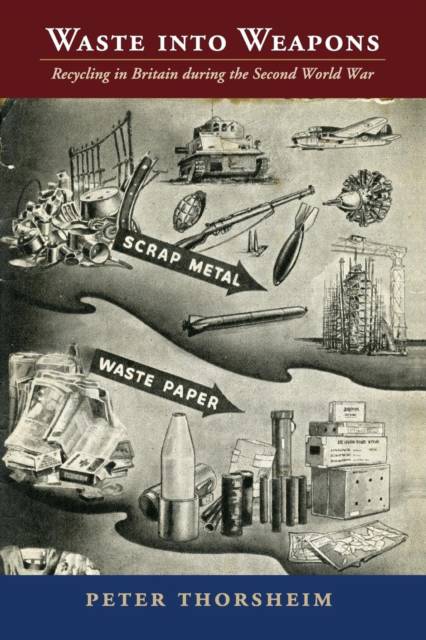
- Afhalen na 1 uur in een winkel met voorraad
- Gratis thuislevering in België vanaf € 30
- Ruim aanbod met 7 miljoen producten
- Afhalen na 1 uur in een winkel met voorraad
- Gratis thuislevering in België vanaf € 30
- Ruim aanbod met 7 miljoen producten
Zoeken
€ 60,95
+ 121 punten
Uitvoering
Omschrijving
During the Second World War, the United Kingdom faced severe shortages of many essential raw materials. To keep its armaments factories running, the British government enlisted millions of people in efforts to recycle a wide range of materials for use in munitions production. Recycling not only supplied British munitions factories with much-needed raw materials - it also played a key role in the efforts of the British government to maintain the morale of its citizens, to secure billions of dollars in Lend-Lease aid from the United States, and even to uncover foreign intelligence. However, Britain's wartime recycling campaign came at a cost: it consumed many items that would never have been destroyed under normal circumstances, including significant parts of the nation's cultural heritage. Based on extensive archival research, Peter Thorsheim examines the relationship between armaments production, civil liberties, cultural preservation, and diplomacy, making Waste into Weapons the first in-depth history of twentieth-century recycling in Britain.
Specificaties
Betrokkenen
- Auteur(s):
- Uitgeverij:
Inhoud
- Aantal bladzijden:
- 306
- Taal:
- Engels
- Reeks:
Eigenschappen
- Productcode (EAN):
- 9781107492097
- Verschijningsdatum:
- 6/10/2016
- Uitvoering:
- Paperback
- Formaat:
- Trade paperback (VS)
- Afmetingen:
- 152 mm x 229 mm
- Gewicht:
- 449 g

Alleen bij Standaard Boekhandel
+ 121 punten op je klantenkaart van Standaard Boekhandel
Beoordelingen
We publiceren alleen reviews die voldoen aan de voorwaarden voor reviews. Bekijk onze voorwaarden voor reviews.











